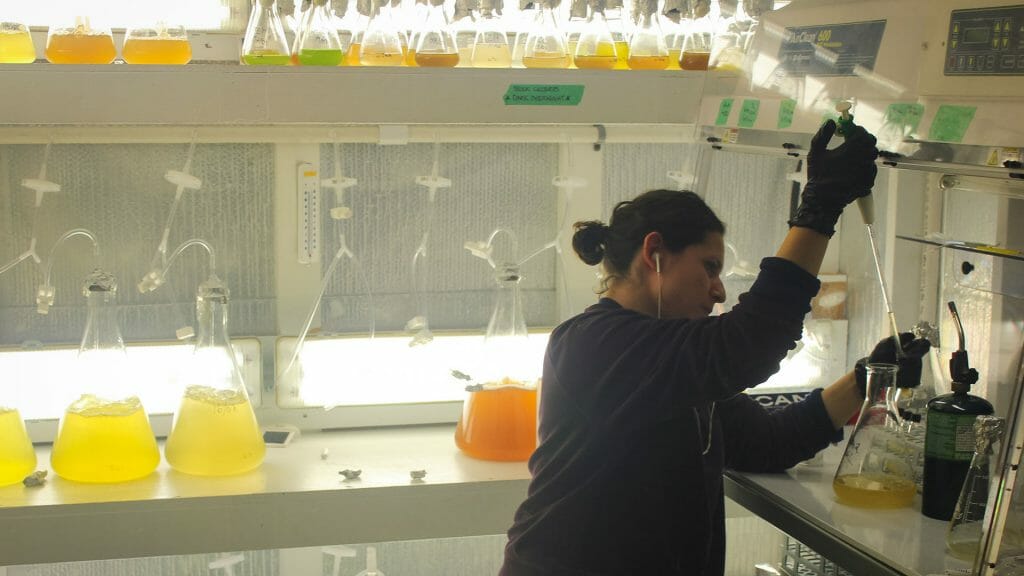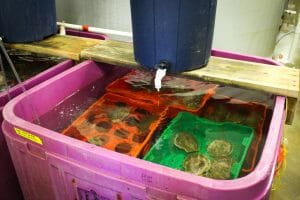Estimated Reading time

2 Mins
Metlakatla Nation Developing Sustainable Economy Through Shellfish

Coastal Shellfish Corporation is a shellfish hatchery facility and farm owned by Metlakatla Nation. Shellfish farming is considered a sustainable fishing practice in line with the Nation’s commitment to sustainable economic activities. Between 2012 and 2015, Coast Funds approved over $2 million in funding to Metlakatla Nation to develop its shellfish hatchery.
Coastal Shellfish was recently featured by CBC’s Cross Country Checkup in an article that examines the role the business plays in providing steady jobs for community members, ethically-sourced scallops to an international market, and a sustainable economy for Metlakatla Nation. The following is an excerpt from that feature.
Michelle Franze and Danielle Simard splash their way through a corridor between enormous vats of swirling murky water. “These larvae are about 16 days old,” Franze said. And we can’t even see them.

In two years, the tiny larvae will be scallops ready for sale to wholesalers and to the restaurant industry across North America.
The vats support the scallop larvae until they grow to be a few millimetres long. Then the young scallops are transferred to ocean nets where they’ll grow to maturity.
Coastal Shellfish’s scallop hatchery and farm operation employs 35 people year-round. They sell millions of scallops under the brand Great Bear Scallops. The operation is majority owned by local First Nations.
It’s a new and exciting shift in direction that has been two decades in the making.
The Great Bear Initiative
Arthur Sterritt remembers the late 1990s as a period of discontent for First Nations in Northern B.C. They had witnessed decades of resource extraction with very little engagement and no focus on sustainability. He was working for the Gitga’at Nation at the time.
“We had done studies on the forest in the region and determined that due to harvesting — if it continued at the rate at which it was going, that we wouldn’t have a tree left in 20 years,” Sterritt said.
“We knew at that time that if we wanted an economy based on the forest we had to do something about the status quo.”
Read more about how Coastal First Nations paved the way for initiatives like Coastal Shellfish on CBC.
